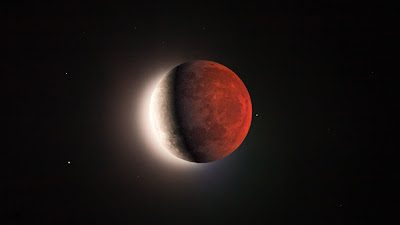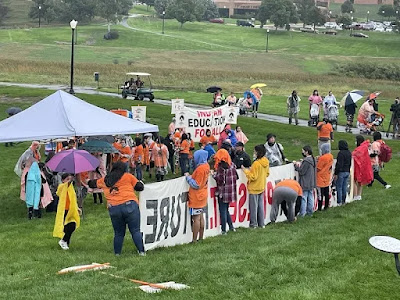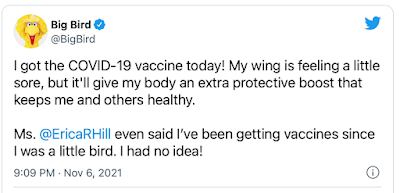by Dick Westheimer
| A 15-year-old sophomore surrendered after firing a semiautomatic handgun. The dead included a 16-year-old boy, a 14-year-old girl and a 17-year-old girl. Michigan’s governor condemned the attack, saying “no one should be afraid to go to school.” —The New York Times, November 30, 2021. The author of the pictured tweet is Oakland County Democratic Party Chair. |
“The future belongs to those who believe in the beauty of their dreams.”
—Eleanor Roosevelt
Because I live in the United States of Guns
Because the gun is mightier than the sword
Because a gun in the hand is worth two in the carry-on bag
Because all that glitters is guns
Because the gun’s got my tongue
Because only guns will tell
Because I am as old as guns
Because all is fair in love and guns
Because any gun in a storm will do
Because guns make the world go ‘round
Because they don’t make guns the way they used to
Because guns are money
Because a fool and his gun are easily parted
Because you only hurt the ones you gun
Because guns are blind
Because guns love company
Because guns are the best medicine
Because guns are more than skin deep
Because one bad gun spoils the whole bunch
Because there’s no such thing as a free gun
Because that’s the way the gun bounces
Because I fear the future belongs to those who believe
in the beauty of their guns.
Dick Westheimer has—in the company of his wife Debbie—lived, gardened and raised five children on their plot of land in rural southwest Ohio. He is a Rattle Poetry Prize finalist. In addition, his recent poems have appeared or are upcoming in Pine Mountain Sand and Gravel, Rise Up Review, Sheila Na-Gig, Snapdragon Journal of Art and Healing, and Cutthroat.



























